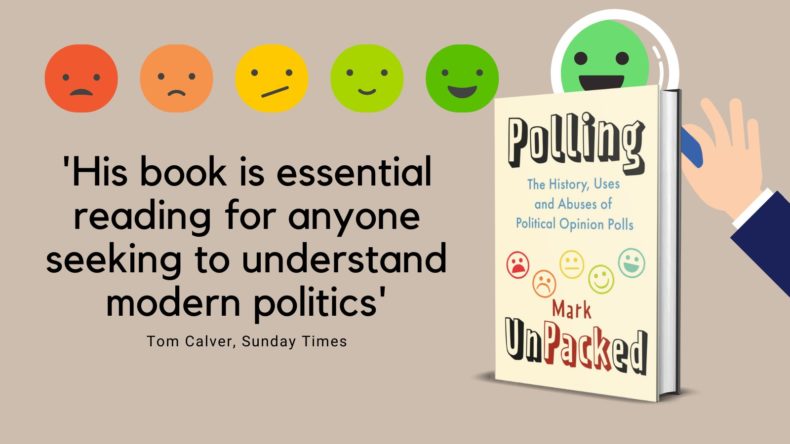Essex pub dispute: do people really still think golliwogs are ok?
Professor Tim Bale has been doing some polling:
The landlady of a pub in Essex has been expressing bemusement about the complaints of “snowflakes” after her display of golliwog dolls attracted the attention of the county’s police – only for them to be told, reportedly by the home secretary Suella Braverman, that they shouldn’t be wasting their time on such “nonsense”.
Six years ago, a not dissimilar incident unfolded in a café at the foot of the South Downs in Sussex [and] that incident prompted me, with the help of the polling organisation YouGov, to do a spot of survey research on public attitudes to golliwogs in England, Scotland and Wales…
Some 63% of the public didn’t think it was racist to sell or display a golliwog doll – although, interestingly, slightly fewer people (53%) thought it “acceptable” to do so. Those who thought it was racist made up just 20% of the sample, and those who thought it unacceptable 27%. The rest said they didn’t know.
But that was then, this is now… YouGov was kind enough to repeat the exercise this week to see whether such a shift had indeed occurred…
Six years ago, a majority said selling or displaying a golliwog doll wasn’t racist. Now it’s a minority. True, that minority still makes up nearly half the population, but a 15-point drop from 63% to 48% in a little over half a decade seems pretty significant. Meanwhile, the proportion of people who think it is racist has gone up from a fifth to just over a quarter (from 20% to 27%), with another 25% (up from 17% in 2017) opting for “don’t know”…
Age continues to play a huge part in all this: a stunning 74% of those aged 65 and over continue to insist that selling or displaying a golliwog isn’t racist – a view confined to a mere 13% of 18- to 24-year-olds.
More evidence of how the long-term trend in British society continues to be one of our country becoming more liberal. Uneven progress and results can vary depending on the exact polling questions used, but broad, consistent progress too.
Get the essential polling book

Are older people more racist because they are old or because they were born a long time ago? Both, or we wouldn’t see these results. But it would interesting to follow cohorts through time to see how (or if ) individuals change their minds.
Perhaps it is the name that is considered racist?
What would the same people answer if asked about a black doll?
Mark, I am interested in your conclusion that these results mean people are becoming more ‘liberal’. To me the definition of being liberal is to allow freedom of expression and to allow any activities that do not harm others. A golliwog doll may offend others but it does not harm them. Surely part of being liberal is to protect the freedom to offend. So isn’t the correct conclusion from this survey actually that people are becoming less liberal?
Disliking racist symbols is liberal in my book, Dawud.
I agree it’s a complex issue. There’s nothing wrong with a liberal wanting to ban racism itself, because racism clearly does cause actual harm. The issue here though is whether a stuffed toy doll, in and of itself, is racist and whether selling one is racist. I think probably context is everything. In the same way as selling copies of ‘Mein Kampf’ doesn’t make me a Nazi in and of itself, nor does displaying/selling these dolls. But there are no easy answers and as we all know Twitter doesn’t do ‘nuance’!
For the book, you could say that a non-racist context is, for example, studying part of it when doing historical work on how the Nazis rose to power and the lessons from that. I think it’s much harder to find a non-racist context for the dolls, except for similar study of the past use of symbols that were then dropped. The pub display – and also the social media postings such as those in https://www.theguardian.com/world/2023/apr/13/essex-police-investigating-golliwog-pub-display-examine-landlord-lynching-post – are though not anything close to that sort of context?
When I was a child, many, many decades ago, I had a golly. Then I thought it was the stuffed toy version of an animal. Later I learned there was no such animal, so I thought it was like a unicorn, a fictitious animal. Only in adulthood did I learn about its origins, roughly, I guess, the same time as they stopped the Black and White Minstrel Show. Now I know just how offensive it is to certain sections of society, so, while I don’t think it is *necessarily* racist, I do think they should not be sold any longer. But I feel sorry for that landlady, who probably thought as innocently as I did when she was young, and can’t understand what the fuss is about now.
I think it’s relevant to look at the person’s postings on social media (e.g. the photo of a golliwog being hanged).